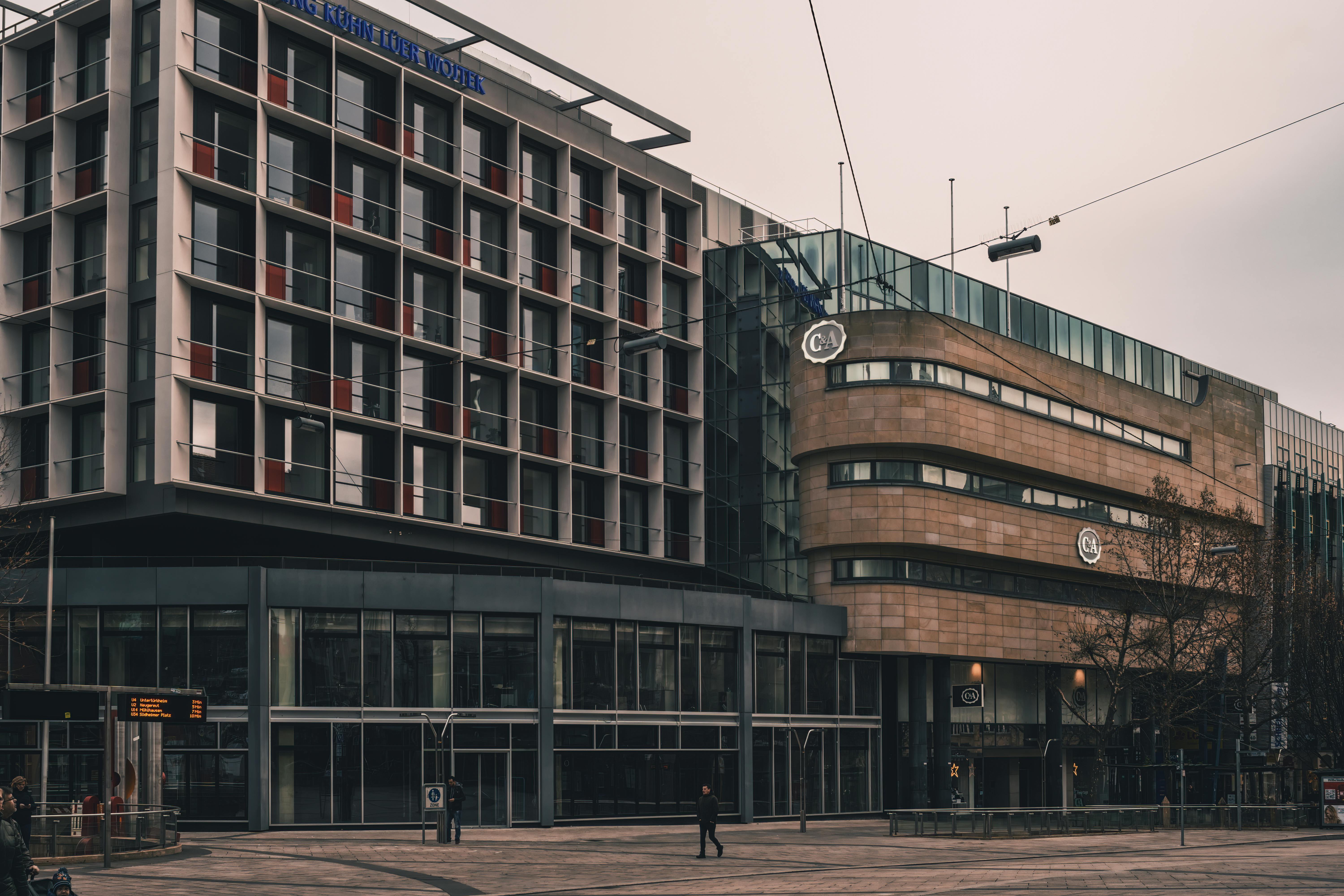Michel Ohayon, a prominent French businessman, purchased the Grand Hotel de Bordeaux in 1999 and subsequently expanded his real estate and hospitality ventures through strategic acquisitions and partnerships. Notably, he invested heavily in the luxury hotel industry, notably acquiring the iconic Chteau Trianon in Saint-Emilion and launching the Waldorf Astoria Trianon Palace hotel in Paris. Throughout his career, Ohayon has diversified into various sectors, including retail, finance, and real estate, forming a formidable conglomerate with notable holdings in Galeries Lafayette department stores, InterContinental hotels, and numerous luxury properties. Recent developments highlight ongoing challenges within his empire, including financial troubles affecting multiple businesses and the placement of his main holding company, Financire Immobilire Bordelaise, in receivership. His expansive portfolio spans across different regions of France, encompassing diverse assets such as retail outlets, hotels, and residential spaces, often involving international partnerships and investments. As he navigates these complexities, Ohayon continues to shape the landscape of French commerce and real estate, reflecting broader trends in the global economy.
Why This Matters Now
Michel Ohayon, the renowned French businessman, continues to expand his extensive network of properties and businesses, cementing his status as one of the most influential figures in the French economy. Over the past decade, he has amassed a staggering wealth through various ventures, including the acquisition of luxury hotels, retail stores, and real estate portfolios. His portfolio spans multiple locations across France, particularly in major metropolitan areas.
Ohayon's influence extends beyond mere financial gains; his investments often drive local economies and provide employment opportunities. For instance, his ownership of 26 Galeries Lafayette stores, which he acquired in 2018, underscores his deep-rooted presence in the retail sector. These stores span different regions, offering diverse product lines and contributing significantly to the local economies in which they operate.
However, Ohayon's recent actions raise serious concerns about the stability and sustainability of his enterprises. In early February, the Bordeaux Commercial Court placed him in receivership for failing to repay debts totaling nearly $163 million. This move highlights the growing strain on his conglomerate, which includes luxury hotels, retail outlets, and commercial real estate holdings. The receivership indicates a significant financial challenge that threatens to disrupt the smooth operation of his business empire.
Moreover, the judicial action against his main holding company, Financire Immobilire Bordelaise (FIB), further exacerbates these issues. FIB, which controls numerous businesses including Camaeu, Go Sport, and others, faces mounting financial troubles despite its attempts to secure payment arrangements. This situation mirrors broader trends within the French real estate industry, where companies struggle to maintain liquidity amidst global economic uncertainties and regulatory pressures.
The interconnectedness of these developments underscores the critical role that Ohayon plays in shaping the French economy. His decisions directly affect not only his own companies but also those operating alongside him. The financial repercussions of his missteps could ripple through the entire ecosystem, impacting employment, supply chains, and consumer confidence.
As international investors continue to scrutinize French business practices, Ohayon's actions serve as a cautionary tale. They highlight the importance of robust financial management and strategic planning in navigating complex markets. For the French government, these incidents underscore the need for stronger regulations and oversight mechanisms to prevent similar crises in the future.
Overall, the current state of Michel Ohayon's empire represents a pivotal moment in the ongoing evolution of the French business landscape. His continued growth and expansion, coupled with the challenges faced by his companies, underscore the multif
Michèle Ohayon's Real Estate and Retail Empire
Michel Ohayon, born in 1961, stands out as a prominent figure in the French real estate and retail sectors. Throughout his career, he has managed to build a diverse portfolio that spans various industries. One of his most notable ventures is the acquisition of the iconic Chteau Trianon in Saint-Emilion, a location renowned for producing high-quality Bordeaux wines. Additionally, he owns approximately 20 Galeries Lafayette department stores, which he purchased from the eponymous group in 2018.
Ohayon's investments extend beyond just property ownership. He also operates luxury hotels such as the Waldorf Astoria Trianon Palace in Versailles and the Hotel Toulon. His portfolio includes numerous retail outlets, including the flagship Galeries Lafayette stores in Bayonne, Cannes, Niort, and Rouen. These businesses employ around 750 employees across different regions of France.
In a recent development, Ohayon faced challenges in managing his retail enterprises. Following the closure of 163 San Marina stores in late February, he attempted to secure a safeguard procedure against potential receivership. This move highlights the precarious state of his retail empire amidst broader financial instability affecting the French commercial landscape.
Moreover, Ohayon's holdings have expanded through strategic acquisitions. For instance, he secured about twenty Galeries Lafayette stores in 2018 and subsequently added Camaeu, Gap France, and Go Sport to his portfolio. His ability to navigate complex business landscapes demonstrates his adaptability and resilience.
However, these efforts have not always met with success. In early February, the Bordeaux Commercial Court placed him and his holding company, Financire Immobilire Bordelaise (FIB), into receivership. This decision underscores the financial strain Ohayon is currently experiencing. The court ruled that the company needed to file a safeguard procedure due to ongoing financial difficulties stemming from unpaid debts.
Despite these setbacks, Ohayon continues to invest heavily in the real estate and hospitality sectors. In December 2020, he reportedly increased his stakes in several properties, injecting 2.5 times more funds into the company than initially promised. His aggressive approach reflects his ambition to further expand his empire, though it has proven difficult to manage financially amid the current climate.
In summary, Michèle Ohayon's multifaceted empire showcases his entrepreneurial spirit and resourcefulness. His ability to navigate through financial crises and continue growing his
Forward-Looking Conclusion
Michel Ohayon continues to navigate through a complex landscape of financial and legal challenges, each turning point shaping his multifaceted empire. The past decade has seen him acquire numerous properties and businesses, each contributing to his growing footprint in various sectors—real estate, hospitality, retail, and luxury goods. However, the current situation presents unprecedented hurdles, threatening to unravel much of what he has achieved.
As we look ahead, several important dates and events stand out:
March 2025:
This marks the expiration of a crucial loan agreement with Bank of China, which played a pivotal role in financing FIB’s expansion. Failure to repay these funds would likely trigger further financial strain and potentially force additional restructuring measures.
June 2022:
With the release of the latest quarterly reports, investors will closely monitor the progress of the recovery efforts. If financial stability is maintained, it might signal a positive shift towards growth and profitability.
September 2020:
The closure of 163 San Marina stores represents a significant setback for retail companies in France, highlighting broader industry challenges. This event underscores the interconnectedness of Ohayon’s ventures and the systemic issues affecting the entire sector.
December 2018:
The acquisition of Camaeu, followed by its liquidation, brought about substantial losses for the group. This incident serves as a cautionary tale, emphasizing the risks associated with rapid expansion and lack of diversification.
January 2022:
The placing of FIB into receivership and the subsequent requests for placement in safeguard procedures indicate increasing instability within Ohayon’s conglomerate. The continued presence of multiple companies under these conditions poses serious questions about the sustainability of his holdings.
These developments underscore the critical junctures ahead, necessitating careful strategic planning and swift action to mitigate potential negative impacts. As stakeholders anticipate future moves, the importance of maintaining transparency and accountability becomes paramount.
Ultimately, the resilience of Michel Ohayon’s empire hinges on his ability to adapt swiftly to emerging challenges and leverage available resources effectively. Only time will reveal how well he manages to navigate these turbulent waters, ensuring the continued prosperity of his diverse portfolio.
By staying informed and engaged, readers can better prepare for the uncertainties ahead, understanding the ongoing dynamics that shape Michel Ohayon’s evolving enterprise. Stay tuned for updates and insights as the story unfolds.










